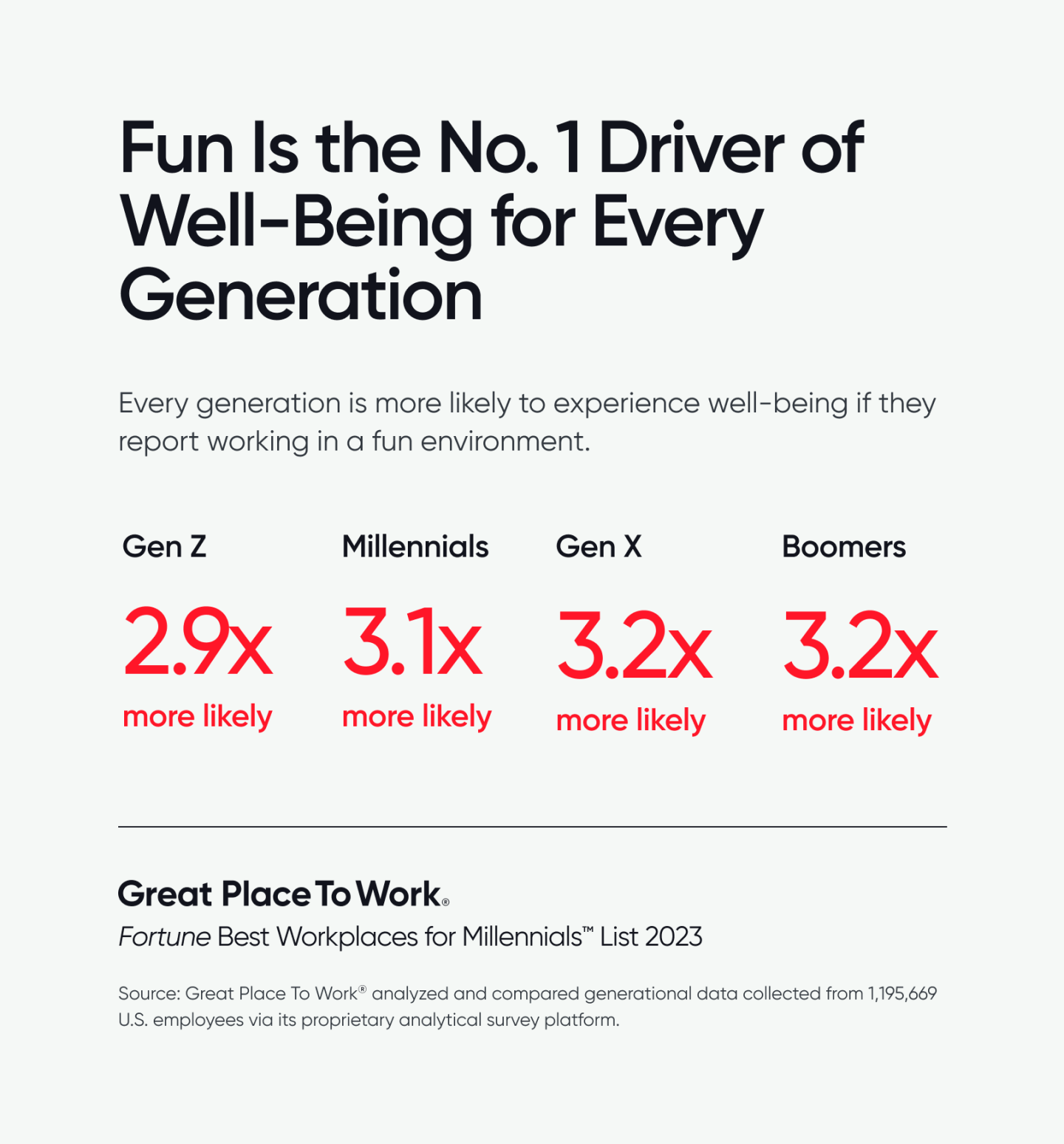3 Things People Want From Their Workplace Experience
According to Harvard Business Review’s Workplace Trends for 2023, nearly 60% of the organisations surveyed are investing heavily in improving their employee workplace experience.
To craft a truly exceptional workplace experience, it’s useful to know what people are actually looking for in an office environment – which, of course, can change over time. So, we decided to do a little digging.
Here are the three workplace experience drivers that stood out for us.
1. Frictionless workplace journeys
Tiffani Bova, author and global growth evangelist at Salesforce, penned an article for Harvard Business Review in which they listed five factors that make for a great employee experience. The fifth factor on their list resonates from a coworking space perspective: seamless technology to reduce employees’ day-to-day friction.
Bova explains how ‘...technology is not an end in itself but a tool for increasing productivity and reducing effort. And yet our research shows that technology is one of the most poorly rated dimensions of employee experience: fewer than one in three employees said their company’s technology works effectively, and fewer than one in four said they’re equipped with seamless technology.’

The majority of organisations work hard to make user journeys streamlined and navigable for customers, but their own internal processes can fall short – especially if these processes and systems aren’t integrated.
Bova argues that, when it comes to technology, organisations should give the customer experience and employee experience equal weight. After all, ‘saving customer time nets out little or no gain if you’re shifting that effort to your employees.’
Where does coworking fit in?
While coworking operators can’t change their members’ internal processes – (where would they even find the time?!) – they can set a good example by prioritising the digitisation and integration of operational workplace processes.
Exploring the potential of your coworking software is a good place to start.
From managing multiple meeting room bookings and facilitating different levels of access control, to enabling digital signatures on contracts, software integrations make the workplace experience frictionless for members and employees alike.
Are there functionalities in Nexudus you’re not familiar with?
Let’s imagine you’re predominantly a private office provider, but have recently allocated some of your floor space to coworking. Lots of people are hot desking nowadays, and FloorPlans can provide your members with a bird’s-eye view of desk availability (and the ability to book quickly and easily).
If you’re a Nexudus customer and would like to brush up on your skills, Nexudus Academy is a good place to start. We run self-led and coaching options – just head to your admin panel and follow the link to ‘Nexudus Academy’ to explore and enrol.
2. Purpose and wellbeing
It will come as no surprise to hear that employees are increasingly seeking personal value and purpose at work.
In a 2023 Gartner article on the topic, research director Caitlin Duffy informs us that ‘while 82% of employees say it’s important for their organisation to see them as a person, not just an employee, only 45% of employees believe their organisation actually sees them this way.’
In a context that is economically and politically volatile, people are questioning whether their workplace aligns with their own personal values, and whether or not their employers value them as a person. Many employees are re-evaluating their choices around how they spend their time in the office as well as outside of it.
1. Deeper connections – Feeling understood through family and community connections, not just work relationships.
2. Radical flexibility – Feeling autonomous in all aspects of work, not just when and where it gets done.
3. Personal growth – Feeling valued through growth as a person, not just as a professional.
4. Holistic well-being – Feeling cared for by ensuring holistic well-being offerings are used, not just available.
5. Shared purposeFeeling invested in the organisation by taking concrete action on purpose, not just through corporate statements.
Although it’s an organisations’ responsibility to ensure that its employees are treated fairly – and recognised and compensated for their work – coworking can support organisations in fostering a sense of purpose, belonging and wellbeing.
Coworking operators are certainly well-placed to support points 1, 3, 4 and 5 in “The Human Deal”. Firstly, coworking spaces often unite people from different industries and backgrounds, providing opportunities for collaboration and community building.
Working in the same building as people who are passionate about the same causes or have the same values can be incredibly motivating, and encountering those with different interests can be educational and enriching too.
This sense of community building can be particularly important for those who would otherwise be working in isolation from home.
Of course, coworking can enable community members to ‘feel valued through growth as a person, not just a professional.’ The access to skills workshops, leisure activities and learning opportunities that coworking spaces offer can be empowering.
Because these opportunities happen both within the workplace, but outside of the employer’s organisation, there’s the added benefit of networking opportunities too.
3. Fun!
Our preoccupation with purpose and value can often mean that fun falls by the wayside (that said, one is often the result of the other). But it’s important to actively look for ways to include and promote fun in the workplace.
According to research from Great Place To Work®, who produced this year’s Fortune Best Workplaces for Millennials™ list, ‘fun’ is the thing that drives wellbeing for all generations, not just millennials. The research found that ‘employees who experience fun at work are 190% to 220% more likely to have high well-being levels.’
 Fortune Best Workplaces for Millenials List
Fortune Best Workplaces for Millenials List
Where does coworking fit in?
You don’t need us to tell you how fun coworking is. But if your calendar is looking a little empty and you need some inspiration, it can help to see what others are doing.
US-based coworking operator NuvoDesk shares its fun events in a monthly newsletter. National Beer Day is one such event – members gather in the kitchen to relax and chat with a drink. The members themselves also run post-work networking events, and these are included in the monthly newsletter.
Games nights are also fun – for those of us who are on the competitive side. The Bulgaria-based coworking space WorkNomads hosted a board game night this year, as did the UK-based workspace Dragon – complete with nibbles.
Of course, not everyone’s idea of fun is the same, which is why it's important for coworking spaces to offer variety. Make sure there are alcohol-free options and cater for different dietary needs. Fun needn’t be raucous either.
A couple of fun-yet-relaxing events we found were Oru Space’s Pottery & Pilates Workshop, and Selina Margate & Cowork’s Astrological Alchemy Workshop!
Discover Nexudus
As coworking operators and experts, we’re leading the way in the realm of workplace experience. This is one of the main reasons why we’re proving so popular with organisations who care about staff retention.
Learn how we can help coworking operators and office space managers bring more to their workspaces with powerful, easy-to-integrate and fully customisable digital tools.
Book a free demo
Related stories
Global Coworking Trends and Opportunities for 2025
Now well into 2025, the coworking industry continues to demonstrate strong momentum. With demand for coworking spaces remaining steady around the globe, it's clear that coworking is not just enduring—it's thriving. Let’s explore the major trends and opportunities shaping the global coworking landscape this year.
Creating Events that Drive Community Engagement in Coworking Spaces
Community is everything in coworking, but a genuine sense of connection between members doesn’t magically happen overnight or by chance. Often, meaningful relationships take intentionality, effort, and time to build, with events being an effective vehicle for bringing people together around shared interests, goals, and experiences, creating opportunities for collaboration, and a thriving coworking culture. This article looks at creating events that drive community engagement in coworking spaces.
Liz Elam: ‘Community is the number one amenity in coworking spaces’
A household name in the global coworking industry, Liz Elam, is the founder of one of the world’s best coworking event series: GCUC. Liz’s coworking roots began in 2010, when she established Link Coworking – a welcoming, affordable, and professional coworking space – in her hometown of Austin, Texas. Link Coworking achieved incredible success, expanding across three locations and becoming the fourth-largest coworking brand in Austin. It was sold in 2019, making Liz the first woman globally to exit a coworking brand.
Key Takeaways from the Coworking Alliance Summit 2025
Gathering online for the Coworking Alliance Summit last week, members of global coworking alliances, coworking spaces, and community leaders came together to navigate global issues, strengthen ties across the coworking industry, and work collectively towards future goals.
5 Ways to Reduce Noise in Open Offices & Coworking Spaces
Some people like working against a background of noise, while for others it’s their worst work nightmare. The truth is, our relationship with noise depends on our own preferences and the nature of our work.
Key takeaways from the Workspace Design Show 2025
London’s Workspace Design Show is undoubtedly one of the best coworking events of 2025. For one, the exhibition (held at Islington’s Business Design Centre) features a host of innovative and creative workspace design solutions tailored to the needs of modern workplaces.
What Is Workplace Management and Why Does It Matter?
There has always been a need for workplace management – the process of organising and optimising physical spaces, resources, and operations to support people’s needs. But, as 28% of UK working adults were reported to work in a hybrid capacity last autumn (by the Office for National Statistics), the question of ‘why workplace management matters’ is more critical than ever. Let’s look at the workplace management benefits for your operations.
10 Smart Goals for your Coworking Space: How to Set & Achieve Business Objectives
Coworking is synonymous with creativity, collaboration and productivity. Businesses and freelancers love coworking spaces because (by surrounding themselves with fellow workers) they’re more likely to achieve their goals. The coworking environment, while social, is set up to facilitate focused, distraction-free working.
The Best Coworking Events in 2025: Must-Attend Gatherings for Professionals
Managing coworking spaces is an all-encompassing role, often leaving operators, owners, and community managers with little time to focus on personal growth or draw inspiration from others.
10 Award-winning Coworking Space Designs: A Comprehensive Guide
Vibrant, contemporary workspaces create an undeniable ‘wow’ factor. Textured designs and ambient lighting make spaces feel warm and cosy, while natural elements and biophilic design features have literal mood-boosting properties.

